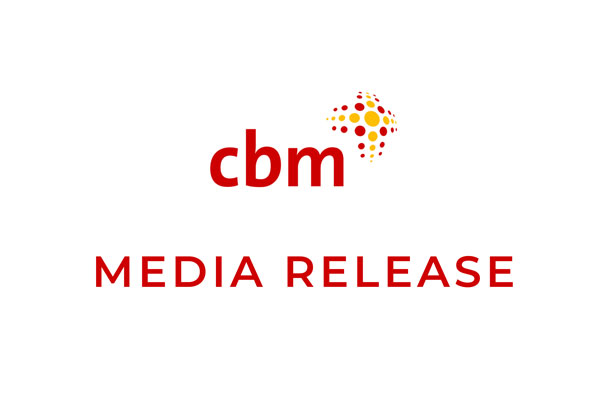It doesn’t have to be this way: the need for accessible and affordable eye health
Media-release | May 22, 2024
Worldwide, an estimated 2.2 billion people are vision impaired or at risk of blindness. In at least 1 billion cases, vision impairment could have been prevented, or has yet to be detected.
That’s why leading disability inclusive development organisation, CBM Australia, works alongside field partners to support Inclusive Eye Care (IEC) projects across the Philippines, Bangladesh, Nepal, Indonesia, Kenya, Nigeria and Papua New Guinea. CBM funds centre-based IEC and outreach care facilities for communities to access eye screening, examination, treatment and surgeries.
Eye health centres provide an important service for their immediate communities; however, some communities are so remote, people simply aren’t aware of the centres’ existence or are unable to travel to get the support they need. Smaller local clinics may struggle to maintain good hygiene standards, have reduced supplies of medicine and not be accessible, particularly to people with disabilities.
With more than 30 years of experience working in Australian humanitarian and development agencies, David Brown, CBM Australia’s Senior Advisor Program Development, has seen the evolution of eye care and feels its future lies in outreach support.
But what’s necessitated this change? Accessibility.
“Outreach centres seek to solve the problem of inaccessibility by responding to the needs of remote populations and establishing outposts in rural areas,” he said. “The scope of outreach programs is amazing. CBM currently provides funding for outreach centres in 16 of 18 provinces in the Philippines.”
“From these outreach centres we’re able to reach around 50,000 people per year. People who have never had access to Inclusive Eye Care are now able to be screened for a range of eye conditions through localised outreach facilities.”
CBM’s program work seeks to support the livelihoods of people with disability, moving to understand how we can support people with disabilities to ways of employment.
“As we saw in Cicendo Hospital, a tertiary level eye hospital in Bandung, Indonesia, people with disabilities were integrated throughout the hospital’s processes and life.
From advisory groups to administrative staff to making sure signage and ramps are present, there’s a whole series of ways people with disabilities can be – and are – included in society. This should be the norm,” said David.
“With our local organisational partners, we advocate for local government bodies to source or allocate funding to develop Inclusive Eye Care programs, and we empower communities by raising awareness about how to find accessible care so that all people can be included in the local health system.”
For media, contact Emma Hipango on EHipango@cbm.org.au
About CBM Australia
CBM Australia is a Christian international development agency, committed to improving the quality of life of people with disabilities in the poorest places in the world. In 2022, CBM Australia transformed the lives of 4.64 million people with disabilities. CBM Australia draws from 115-years’ experience globally and 45 years in Australia. It works alongside people with disabilities to deliver sustainable programs, advocacy and advisory.
https://www.cbm.org.au/media-release/it-doesnt-have-to-be-this-way-the-need-for-accessible-and-affordable-eye-health
Related Stories

CBM Australia welcomes investment to bolster disability rights in the Indo-Pacific
Wednesday 3 December 2025 CBM Australia warmly commends the Albanese...

CBM Australia Welcomes the Australian-led Declaration for the Protection of Humanitarian Personnel
23 September 2025 – Over 100 countries have supported...

Taking a stand against intersecting bias impacting older people with disabilities in development and humanitarian contexts
A new policy report by The Fred Hollows Foundation...
